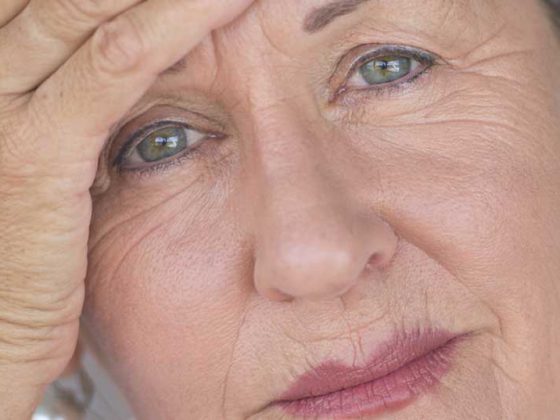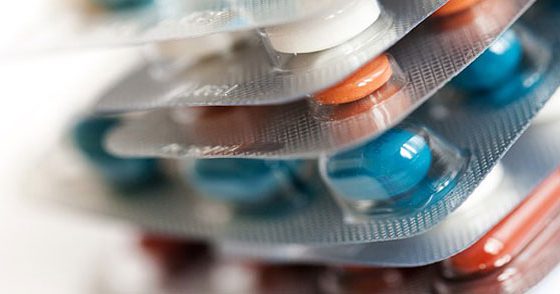The ECTRIMS Congress was held this year in Barcelona. Insights into research and recent data were presented, including a phase III trial testing the effect of an antibiotic after an initial isolated event, several studies addressing suicide risk in people with MS, and a smaller paper demonstrating that supplementation of MS patients with too-low vitamin D levels positively affects certain cognitive tests.
It is not uncommon for multiple sclerosis (MS) to be clinically preceded by a first demyelinating event (CIS). Therapy should be considered in patients with CIS and MS-type lesions on MRI, as these patients often develop clinically manifest MS. The drugs currently approved in this indication are more effective the earlier they are used. Nevertheless, due to safety and cost considerations, treatment is often delayed until patients suffer a second episode.
A multicenter randomized trial from Canada of 142 patients who had experienced a first CIS within the previous 180 days and had at least two T2 hyperintense lesions on MRI has now tested a well-known, inexpensive, and well-tested agent in another indication: Minocycline. This oral tetracycline is currently indicated for acne vulgaris. Preclinical studies had already shown that it could be a potential option in MS, both as a monotherapy and as an add-on therapy.
Participants in the phase III trial ranged in age from 18 to 60 years (mean age 35.8 years). 68.3% were women. The median Expanded Disability Status Scale (EDSS) score was 1.5, and 69% had >8 T2 lesions. Patients were randomized to receive either minocycline orally 100 mg twice daily or placebo. This treatment was continued for up to 24 months or until a confirmed diagnosis of MS (2005 McDonald criteria). The MRI scans were each interpreted by the same blinded individual. The primary endpoint was the number of patients with MS after six months.
Risk reduced by almost half
Based on McDonald criteria, the risk of developing clinical MS within six months was 61.4% in the placebo group and 34% in the minocycline group. Thus, the absolute risk reduction was 27.4% and the relative risk reduction was 44.6% (p=0.001). The Number Needed to Treat (NNT) was 4. The data after one year were as follows:
- Absolute risk reduction by minocycline: 25.1%.
- Relative risk reduction with minocycline: 37.6%.
- NNT: 4 (p=0.002).
18 (minocycline) vs. 6 (placebo) subjects had discontinued treatment throughout the 24-month period. The safety profile was good and in line with expectations for antibiotic therapy.
According to the authors, the results can be compared with the efficacy of approved MS therapeutics. Given these data, its low cost, ease of use (e.g., compared with injections), and well-researched safety profile, the antibiotic is well worth considering as an initial treatment. It could facilitate early treatment initiation and thus increase treatment success in many cases. The discovery also offers potential for countries where access to current MS therapeutics is difficult or impossible. Safety monitoring is not necessary under minocycline. It is also useful to further investigate minocycline in combination with other substances.
Possible limitations
The onset of the event was significantly more likely to be in the spinal cord in the placebo group, which is a predictor of early transition to MS, according to the researchers. In addition, more patients in the placebo group had ≥2 gadolinium-enhancing lesions. Both factors could have influenced the results in favor of the investigated substance. However, a regression analysis that included the two parameters mentioned above still showed a significant advantage for minocycline. Other variables examined included age, gender, and ethnicity. They each showed no interaction with outcome.
Do vitamin D supplements improve cognition?
In addition to genetic risk factors, environmental parameters also play a key role in MS, as evidenced, among other things, by the varying distribution of the disease according to latitude: The risk of MS decreases with increasing proximity to the equator. This is partly explained by vitamin D metabolism. Several recent studies also correlated low 25(OH)D levels with cognitive dysfunction in adults. It is known that vitamin D receptors can be found in the brain of both animals and humans. A cognitive function can thus be suspected.
In a study presented at the congress, adult patients with relapsing-remitting MS on interferon-β therapy and with vitamin D levels too low received vitamin D supplements for three months. At baseline and after supplementation, cognitive performance was measured. Methodologically, they used the Montreal Cognitive Assessment (MoCA), the Stroop test, the Symbol Digit Modalities Test (SDMT), and the Brief Visual Memory Test delayed recall (BVMT-DR) and immediate. Together, the tests took about 45 minutes.
Forty-one of the recruited participants had serum 25(OH)D levels that were too low at baseline, and 48 had normal levels. Those with levels that were too low received supplementation, while the others received the usual medical care. A diary was used to collect the sun exposure of all patients.
There was no difference in disease duration within the two groups, but those with too-low scores had a higher mean EDSS score (1.6 vs. 1.1; p=0.04). They also exercised less (possibly related to the increased EDSS score), but drank and smoked more. The average level of education was high in both groups. About the results:
- The patients with the low vitamin D levels performed less well than the group with normal levels in all the above tests at baseline. The exception was the Stroop test. Significant was the difference in SDMT and BVMT-DR.
- The group with the low vitamin D levels showed improvement in BVMT immediate (10 and 30 seconds), BVMT delayed recall (20 minutes), and MoCA after three months of supplementation. As expected, vitamin D levels had increased significantly with supplementation.
- Serum 25(OH)D levels correlated positively and significantly with BVMT-DR (important parameters such as educational level, physical activity, disease duration, EDSS, depressiveness, age, etc. were controlled in the analysis).
The researchers conclude that cognition in MS is affected by low vitamin D levels and can be improved with supplementation. In MS patients, vitamin D should therefore be measured and, if too low, substituted, they conclude. Another finding of the study: Especially in MS patients with low 25(OH)D levels, physical activity is worthwhile. A particularly strong correlation between physical activity and cognitive performance was found in this group.
MS patients – suicide risk is high
Patients with MS are known to be at increased risk for suicide. What is not equally well researched is suicide attempts in this collective. While data from Canada showed a significant risk increase by a factor of 3, Danish researchers did not find a significantly increased likelihood of attempted suicide in MS sufferers (although this may be because the study of 404 patients was underpowered).
A new study presented at the ECTRIMS congress again showed significantly elevated levels. From a Swedish registry, they identified 29,617 MS patients and matched them with 296,164 matched individuals without MS from the general population. It was also investigated whether the higher level of education, which is usually associated with a lower risk of actual suicide, also plays a role in people with MS.
- The risk of suicide attempts was increased by a factor of 2.18 (1.97-2.43) for MS patients.
- MS also increased the risk of executed suicide by a factor of 1.87 (1.53-2.30).
- Excluding from the study those patients who had already attempted suicide prior to MS diagnosis did not change the results.
- In both the control and MS groups, men were at higher risk for completed suicides and women for suicide attempts (30 percent increase over men).
- Higher education (14 years or more) reduced the likelihood of a suicide attempt in both groups.
- Higher education showed an inverse association with executed suicide in the non-MS cohort (HR 0.68, [0,51–0,91]). Remarkably, this relationship was exactly reversed in MS patients: higher education actually slightly increased the risk of actual suicide (HR 1.10, [0,60–2,04]). Thus, the “protective” effect of educational status appears to be lost in MS.
Another study was devoted to the risk of self-inflicted harm in MS patients. This also appears to be significantly increased: Compared with the comparison group, the MS cohort showed a 59% higher risk of self-inflicted harm. The researchers determined this via hospitalization data from across England (1999-2011). The risk was greater in men than in women (RR 1.94 vs. 1.48). Younger MS patients under 45 years of age were also less likely to inflict harm on themselves. Interestingly, however, the data from the other study had shown that suicide risk was significantly higher in younger MS patients than in older ones.
Overall, the authors recommend screening MS sufferers for psychiatric disorders in clinical practice. Especially because neither suicides nor suicide attempts have decreased in recent years. In addition to depression, which is probably the most important mediator with regard to suicide prevention, attention should also be paid to, for example, increased addictive behavior or decreased impulse control. Furthermore, a clear distinction must be made between patients who attempt suicide and those who carry it out. These are two different groups. This is shown not only by the different influences of education, but also by gender differences, different methods of suicide used in the two groups, and differences in psychiatric conditions. Studies show that people who attempt suicide often suffer from other psychiatric disorders, such as borderline personality disorder, instead of depression.
Source: ECTRIMS, 7-10 October 2015, Barcelona
InFo NEUROLOGY & PSYCHIATRY 2015; 13(6): 40-43.











